Best Time to Visit Europe (& Where to Go When)
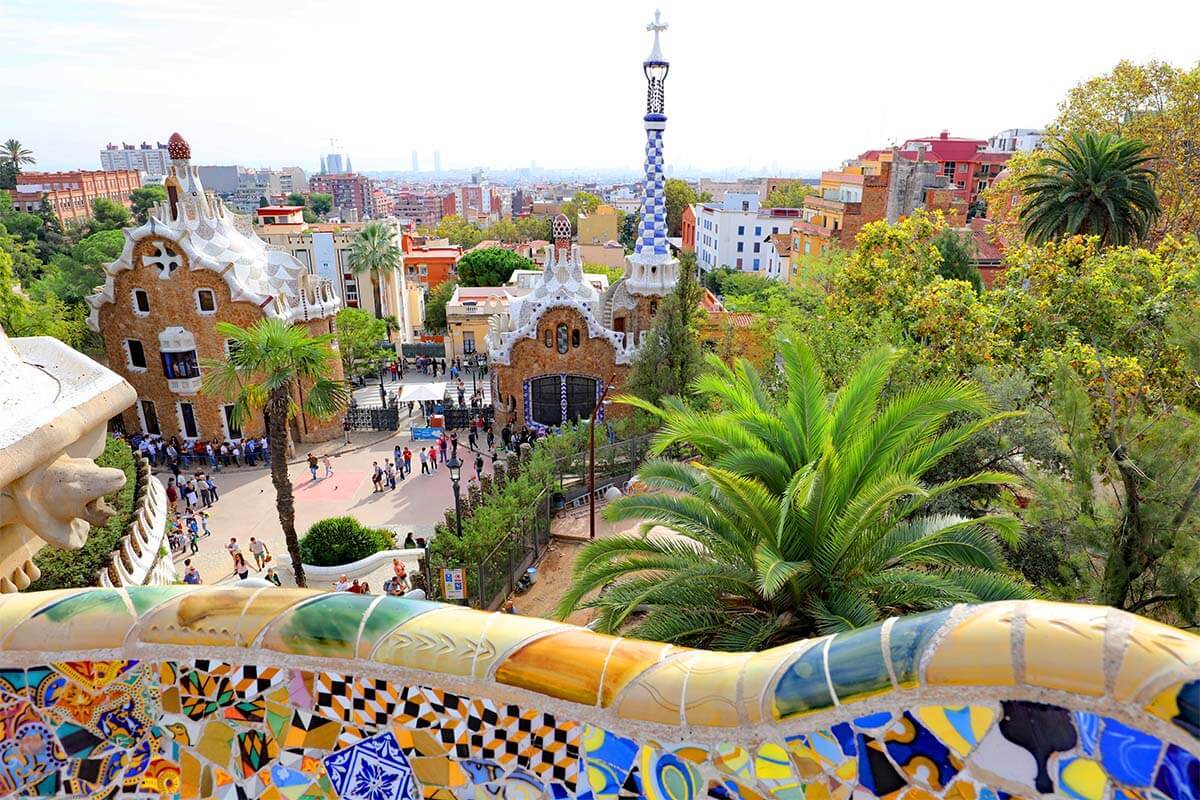
Spanning more than 40 countries, a visit to Europe gives you the opportunity to explore everything from snow-capped mountains to warm and sandy beaches, along with historical sites and archaeological ruins. And whilst one place is experiencing its low season with few tourists and little to do, another may be at its liveliest.
If you are wondering when is the best time to visit Europe, there is not one straightforward answer. Every season can be a good time to visit Europe; you just have to know what to expect and where to go when.
The weather is not consistent across the entire European continent at the same time. Southern parts of Europe are significantly warmer than the northernmost parts throughout the year. So the best time to visit Europe depends on what you want to see and do during your visit, your budget, and the temperature range with which you’re the most comfortable!
In this article, you can find an overview of what to expect in different parts of Europe in different months of the year. We also include some of the best places to visit in Europe in every season, special events to look out for, and a few tips to help you make the very most of your experience. Find out!
TIP: At the end of this article, you can find a short overview of the best times to visit Europe depending on your interests.
When to visit Europe – OVERVIEW:
READ ALSO:
★ How to Plan a Trip to Europe (step-by-step guide and tips)
★ Top European Attractions You Must Book in Advance
Europe in January – February
With average temperatures ranging from around -5°C to 5°C (20-40 °F), January and February are the coldest months of the year in Europe.
This means that – in many areas – you can expect high winds, snow, rain, or sleet (a rather unpleasant snow/rain combination that chills you to the bone and soaks you at the same time!). Even the typically warmer Mediterranean region will be cold and wet at this time of year.
That said, winter is not a bad time to visit Europe and there are some pros as well as cons – see below.
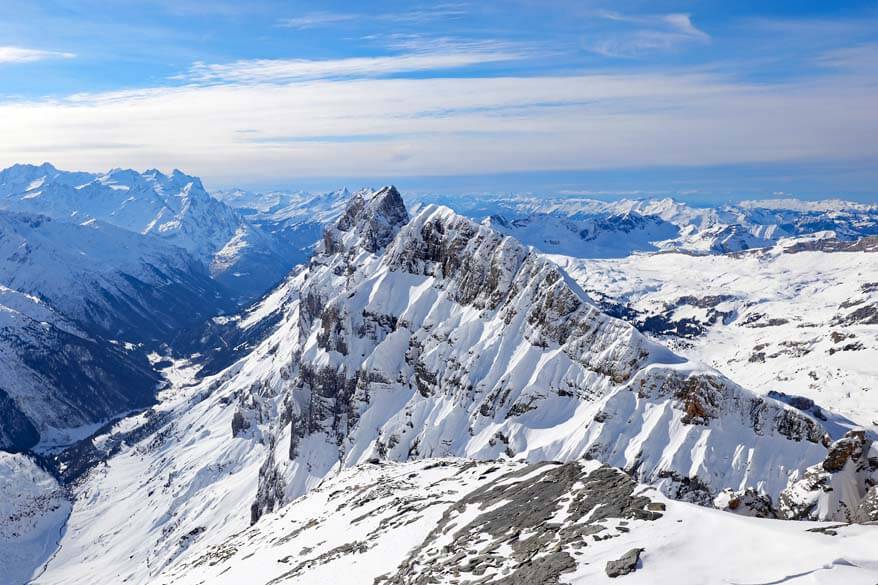
Pros
Because of the weather and little to no school holidays, January and February are usually the quietest months to visit Europe. This is also by far the cheapest time in most European destinations.
Rather than fighting your way through the crowds to catch a glimpse of a famous attraction, you can usually view the sights at your leisure.
Flights and accommodation prices are usually lower, so it’s a great time to see Europe if you’re on a budget.
Cons
The lower visitor numbers mean that some attractions may have limited visiting hours, or may be closed altogether.
January 1st is a public holiday in Europe, meaning that – in addition to attractions and historical sites – some shops and restaurants may be closed too. Many seasonal businesses at the coastal destinations will be closed during this period too.
This simply means that you will need to plan your winter trip to Europe a bit more carefully. Check ahead of time that you will be able to see everything you want to.
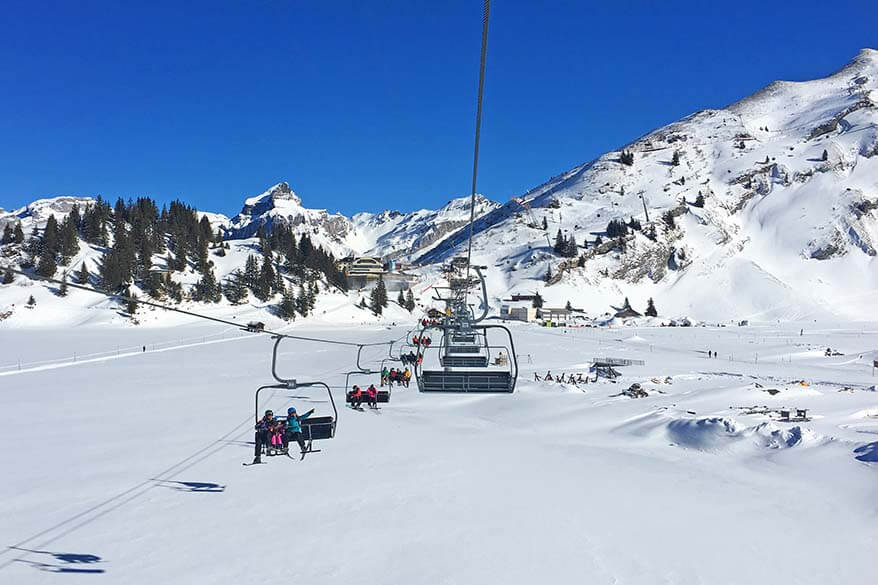
Best places to visit
January and February is the season for winter sports and winter activities in Europe. It’s the busiest time of the year in some destinations in Scandinavia and also in the Alps. Most ski resorts in Europe open in December and close in late March or April.
That being said, January is actually a fairly quiet month even for winter activities. It’s the best time to go skiing if you want to get away from the crowds and spend less money. Things tend to pick up again in February when many European children are on their school holidays.
SOME TRAVEL INSPIRATION:
Skiing in Engelberg, Switzerland
Mount Titlis, Switzerland
Gornergrat, Zermatt
Skiing in Grindelwald-Wengen, Switzerland
These months are also good for taking a real winter holiday in destinations north of the Arctic Circle. January is great if you want to experience a polar night and February often comes with beautiful blue light.
But while this is a good time to see the Northern Lights and do some fun winter activities, you should be prepared for many hours of darkness and freezing cold weather. If you don’t mind some darkness and the cold, February can be a magical time in the Arctic!
SOME TRAVEL INSPIRATION:
Svalbard in Winter

If you can bear the wet weather, January and February is also good time to visit European cities – particularly if you like to shop! January is the best time for fashion sales. Many European cities like London, Paris, Rome, or Madrid offer some great opportunities for bargain hunting.
Away from the shops, though, most cities will be extremely quiet at the beginning of the year. It’s a good time to visit museums, theaters, and attend concerts. And you will have a largely uninterrupted (although rather gloomy) view of the major landmarks.
Facilities in the cities are geared up for the cooler weather. So you will often find restaurants, for example, with covered outdoor areas warmed by patio heaters. These can actually feel very cozy and are ideal for a romantic break!
SOME TRAVEL INSPIRATION:
Strasbourg, France
Milan, Italy
Amsterdam, The Netherlands
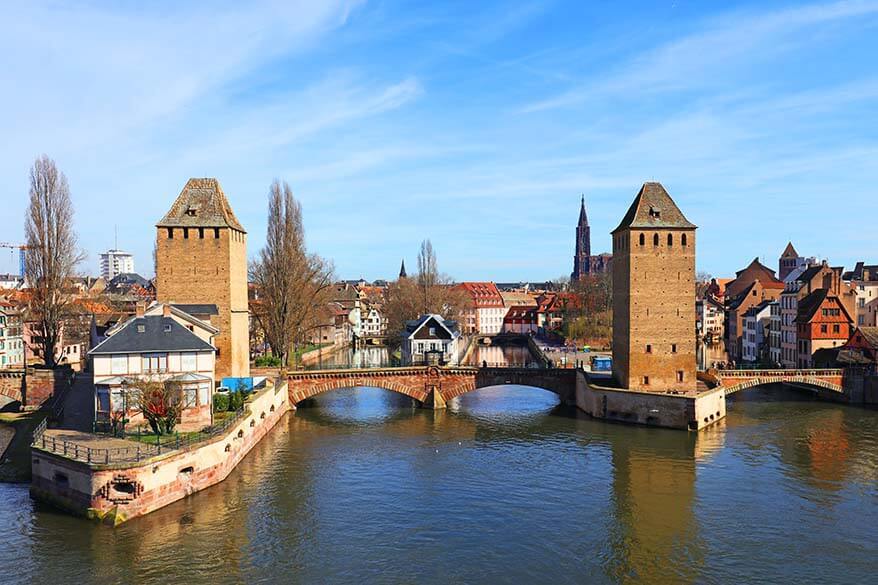
Winter sun
Despite the frigid temperatures in most parts of Europe, it is still possible to find some sunshine and warmer temperatures at this time of year!
Here are some European destinations that all enjoy some relatively warm and sunny days during these months: Malta, the Portuguese Algarve region and Madeira Island, the Canary Islands (including Lanzarote, Tenerife, and Gran Canaria), Cyprus, and Crete Island in Greece.
The Canary Islands are an especially good choice at this time of the year if you want to have more certainty about warm and sunny weather.
SOME TRAVEL INSPIRATION:
Hiking in Madeira
Most Beautiful Beaches in Algarve
Best Things to Do in Tenerife
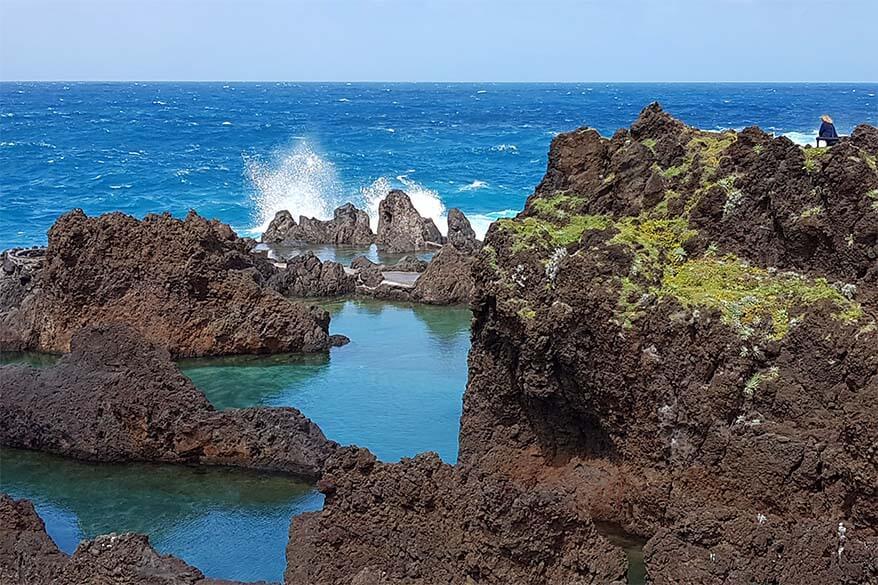
Special events
Many major cities hold parades on New Year’s Day and one of the best parades is in London, England (more info here)! Featuring thousands of performers and eye-catching floats from across the world, it marks the perfect way to celebrate the New Year.
Many places across Europe have ice sculpture festivals and carnival celebrations during this time of the year.
One of the most famous carnivals in the world – the Carnival of Venice – usually starts at the end of January and ends mid-February (more info here). You can enjoy elaborate, beautiful costumes, street performers, and concerts throughout the carnival, culminating in an unforgettable finale where hundreds of gondolas float down the main canal in a candlelit parade.
READ ALSO: Best Things to Do in Venice
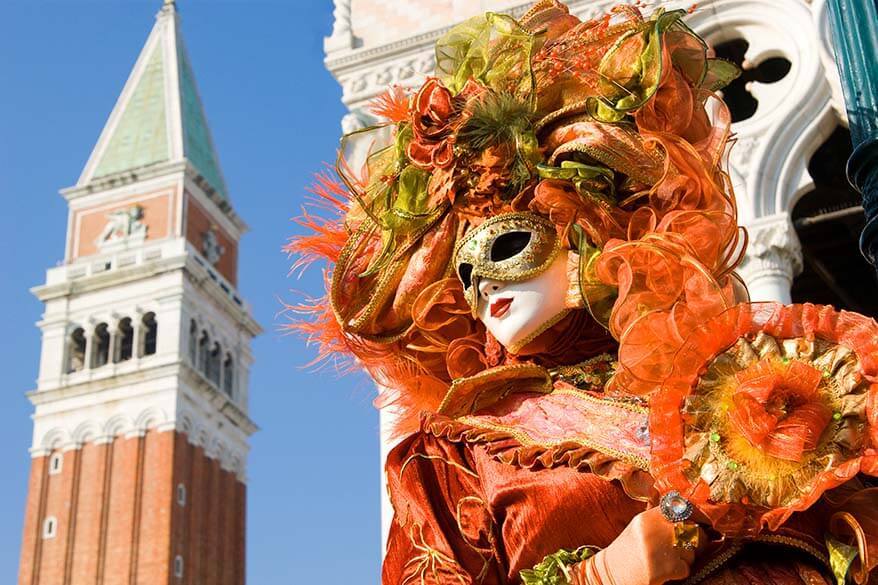
Europe in March
March is somewhat of a shoulder month between winter and spring weather. If you are not looking for beaches and summer weather, this is a great time to visit many places in Europe.
In northern Europe, you can now experience the ‘sunny’ winter with more daylight and more bearable temperatures. March is also one of the best months to see the Northern Lights.
This is also the top season in most European ski resorts. And in southern Europe temperatures are usually already very pleasant for sightseeing.
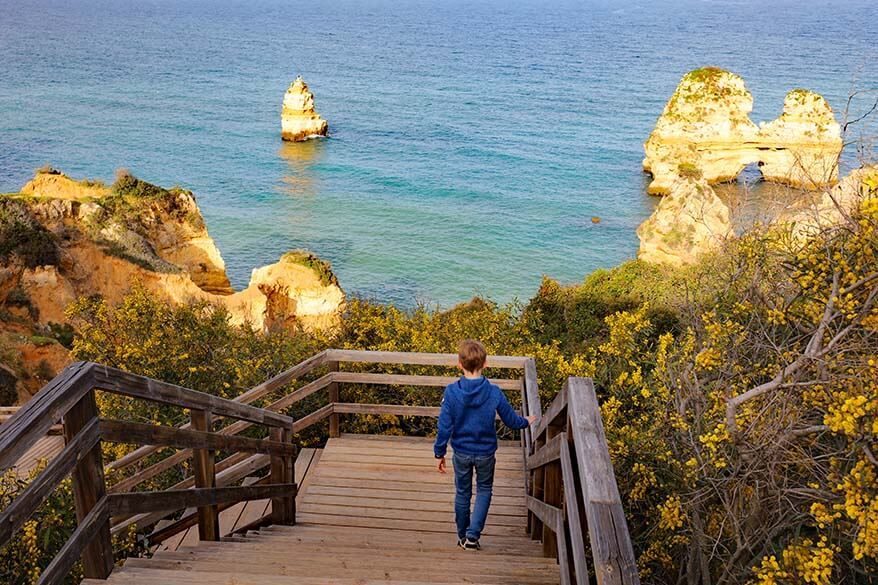
Pros
Visitor numbers are still relatively low in most European destinations. Very few parts of Europe have school holidays in March unless Easter falls early or ski holidays fall later than normal.
Flights and accommodation prices in most major European destinations are still significantly lower than later in the year.
Cons
In many destinations, March still has very unstable and changing weather. This is particularly the case in Western Europe. It might be quite wintery and even snowing one week and nice, warm, and sunny the next (or vice versa if the winter returns unexpectedly again). So you never know in advance what kind of weather you’ll get.
Best places to visit
March is one of the best months for those who want to experience a true winter wonderland in the Arctic regions! Northern Norway, Svalbard, Iceland, Finland, even Greenland – all are wonderful winter destinations.
But the month of March is particularly good to experience the winter magic in the Arctic. There is enough daylight so you can do more activities and sightseeing, the nights are dark enough to see auroras, and it’s not as cold as in December, January, or February.
SOME TRAVEL INSPIRATION:
Tromso in Winter
Iceland in Winter
Rovaniemi in March
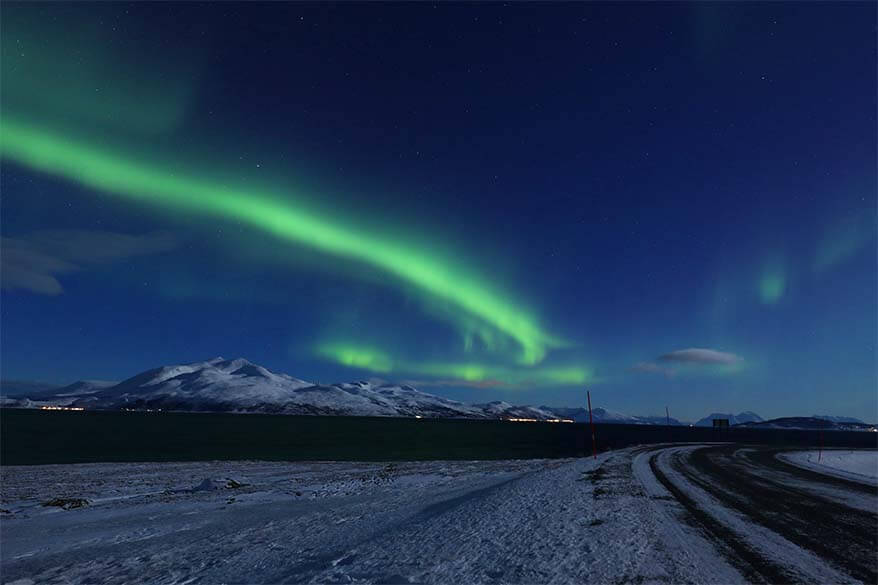
March is also a great month to enjoy winter sports in the Alps! The resorts are nice and quiet after all the hustle and bustle of the February crowds. Furthermore, the weather is usually much better than in winter and you can often enjoy beautiful sunny weather in the mountains.
SOME TRAVEL INSPIRATION:
Jungfrau Region (Switzerland) in Winter
Jungfraujoch, Top of Europe
March is also a nice month for European cities and historic sites. Especially if you want to visit them without the crowds. Paris, Amsterdam, or Rome can be magical in March!
SOME TRAVEL INSPIRATION:
Barcelona, Spain
Rome, Italy
Lisbon, Portugal
Madrid, Spain
Ypres and WWI Sites in Belgium
Amsterdam 2-day Itinerary
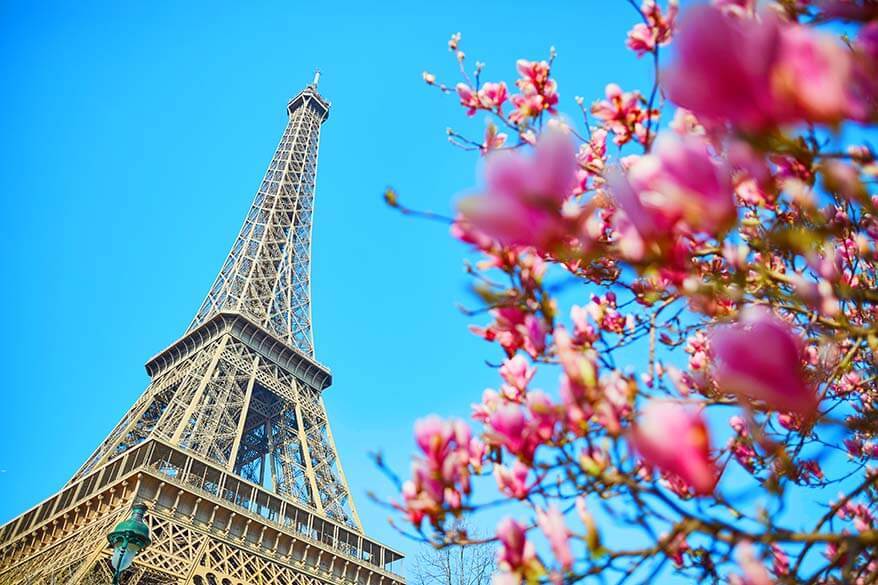
Special events
17th of March is St. Patrick’s Day, when Irish culture is celebrated across much of Europe. To make the most of the festivities, head to Dublin and enjoy the four-day festival and parade! More info here.
March is also the time of one of the loudest festivals in Europe, Fallas Valencia (Spain). The festival celebrates the arrival of spring and usually takes place around mid March and lasts several days. With giant paper figures, floral parades, and fireworks, the entire city center is very festive.
In many parts of Europe, March is a good time to see spring blossoms.
READ ALSO: Spring Break in Europe: Best Destinations to Visit
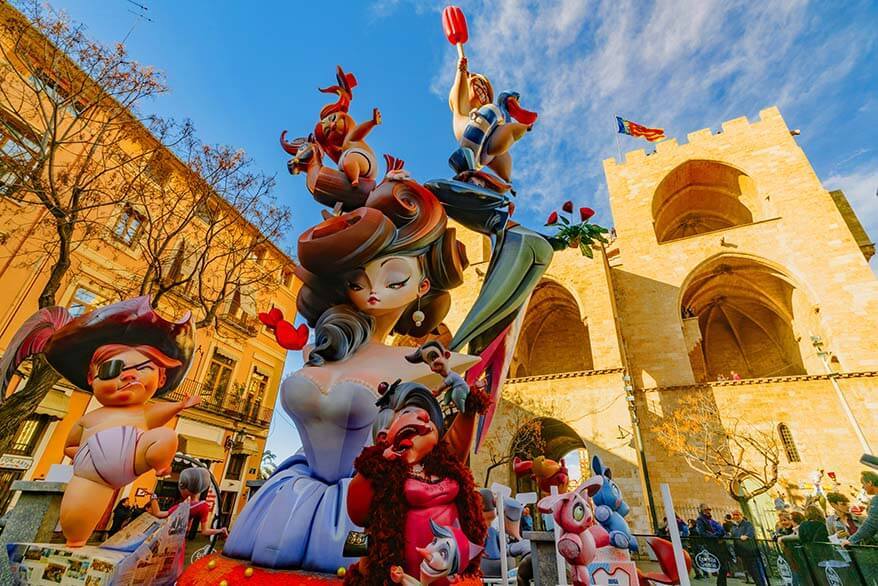
Europe in April – May
April – May is the time when spring finally arrives everywhere in Europe and temperatures start to warm up. April can still be quite wet, with rainfall gradually tapering off towards May.
Good to know: The better weather and Easter Holidays in April cause visitor numbers to rise quite significantly. If you can, avoid visiting major European destinations around Easter.
Spring is also the time when cruise ships start repositioning from the Caribbean to the Mediterranean. From April onwards, coastal destinations tend to see surges in visitor numbers on the days when the cruise ships arrive. Cruises in the Baltic and Nordic regions also begin operating at around this time, although the number of visitors to these areas is still quite low.
TIP: Many destinations have a cruise ship schedule published online. So if you do some advance planning, you can plan your trip in such a way that you avoid the busiest days.

By May, temperatures in many parts of Europe become very pleasant and the days get longer. If you’re lucky, you can even experience summer weather!
May is one of the nicest months to visit Europe – you are able to enjoy the smaller crowds and reduced prices of the quieter season, alongside some beautiful warm weather!
That being said, May can already be quite busy. This is particularly the case in large cities around Labor Day (May 1), Ascension Day, and Pentecost. Many European countries have public holidays around those days, so people take a few extra days off and plan weekend getaways. This is the most popular time for European city breaks!
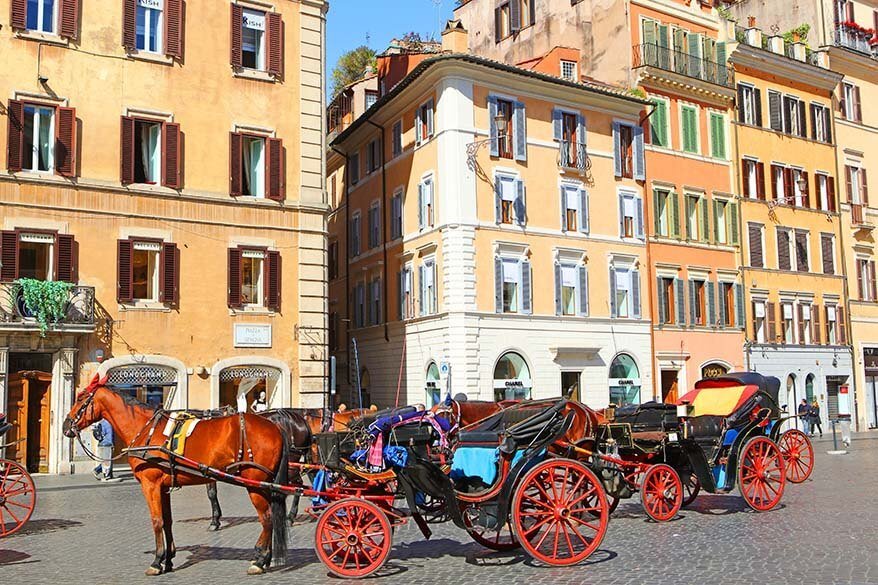
Pros
Spring weather is often perfect for sightseeing, particularly in southern Europe where it gets too hot in the summer. Furthermore, visitor numbers are still relatively low (if you can avoid the Easter holidays and a few long weekends in May).
Prices of accommodations are also lower in April and May than in the summer months. This is especially the case outside the main cities.
Cons
The Easter Holidays and public holidays in May often result in large crowds. Main landmarks and attractions in the major cities and family attractions like amusement parks can get particularly busy.
Also, some destinations are just starting to ‘wake up’ after the winter and many places in the more rural areas are still closed in April.
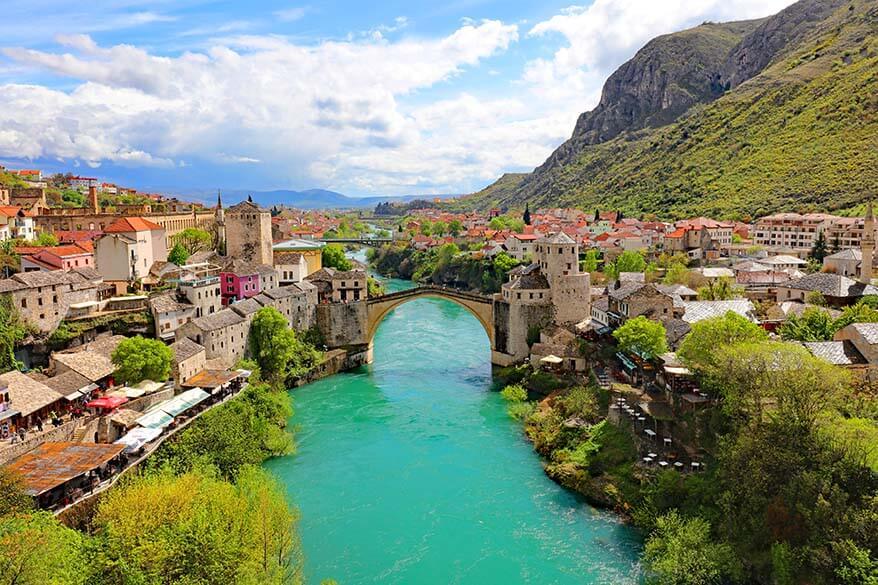
Best places to visit
The spring months are ideal for visiting Europe’s major cities and southern European countries. Although the number of visitors increases as each month goes by, this is still a relatively quiet time compared to summer.
Spring is the best time of the year to visit London, Paris, Rome, Brussels, Amsterdam, Barcelona, Vienna, Salzburg, Athens, Venice, and many other cities all across Europe.
Western Europe, in general, is also great at this time of the year. Not just for the cities, but also the rural areas and nature destinations. One of our personal favorite European countries to visit this time of the year is Portugal (for more info see our guide to Portugal in April). Because it’s not too hot yet, it’s also a great time to truly explore Lisbon!
SOME TRAVEL INSPIRATION:
Salzburg City Break – Itinerary for 2 Days
One Day in Venice
One Day in Florence
Hallerbos in Belgium
One Day in Amsterdam
Dutch Countryside
Best Cities in Romania
Kinderdijk Windmills in the Netherlands
Best Things to Do in Edinburgh, UK
Rome Hidden Gems
London with Kids
Best of Bruges, Belgium
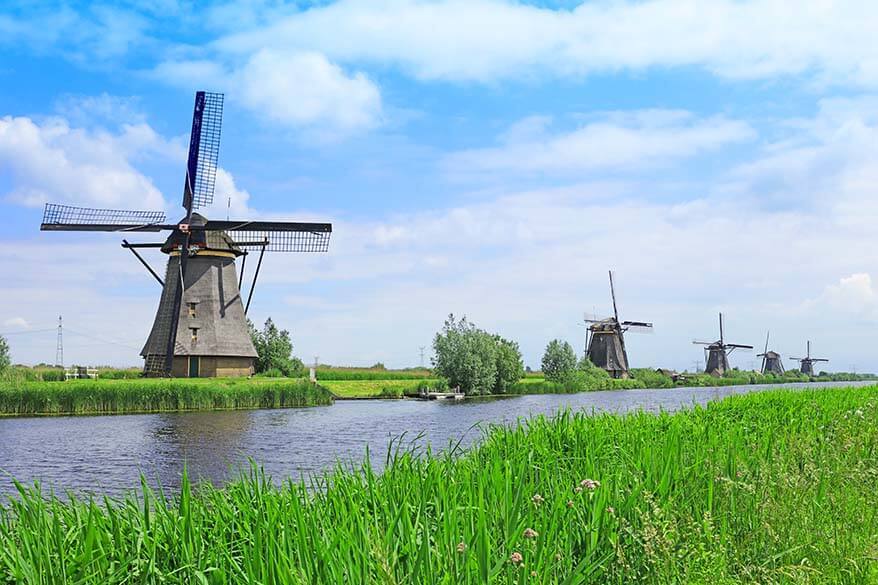
If you’re hoping for the maximum amount of warmth during your European spring trip, then head to southern Europe or the Balkans.
Places like Greece, Portugal, Cyprus, Malta, Croatia, or the Spanish or Portuguese islands are great this time of the year. There, the season is slowly starting but the number of visitors is still fairly low.
The exceptions are Spain and Italy where many destinations are very busy at Easter and also throughout May. But there’s a good reason for that – this is a wonderful time of the year here!
All the ski resorts tend to stay open until just after Easter. By May, it’s already a good time for hiking at the lower altitudes.
SOME TRAVEL INSPIRATION:
Croatia Itinerary
Bellagio, Italy
Best Villas & Gardens of Lake Como, Italy
Portugal Itinerary
Best Places to Visit in Italy

Special events
April is the best time to see the tulip fields in the Netherlands. From the end of March until the beginning of May, you can visit the famous Keukenhof Gardens and Lisse tulip fields.
The Cannes Film Festival in southern France also takes place in May. It’s Europe’s counterpart to the American Academy Awards.
Andalusia region in Spain is world-known for its Semana Santa (Holy Week) celebrations. There are impressive parades all over the main cities in the region and they attract huge crowds. If you decide to visit Sevilla, Cordoba, or Granada around Easter, make sure to book your accommodation long in advance!
Madeira Flower Festival takes place 4 weeks after Easter. Many other places all over Europe have all kinds of flower shows and festivals in spring. Also, Labor Day (May 1st) celebrations are quite elaborate in some places in Europe.
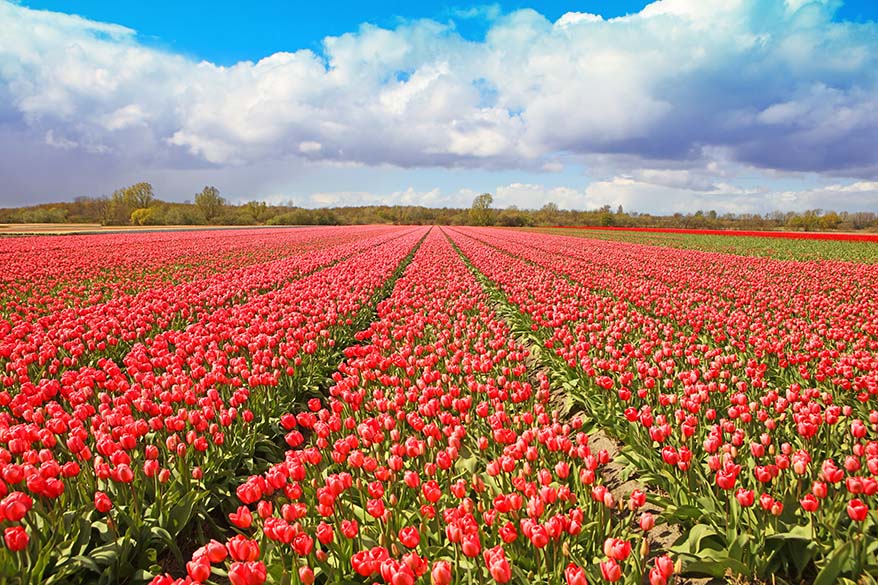
Europe in June & September
June and September are the best months to visit Europe for those who want to experience all the advantages of summer but without the huge crowds.
The very best time to visit pretty much any place in Europe is the first half of June and the second half of September.
Some of the larger cities and attractions are already getting busy in June and remain busy until mid September. But step a bit off the beaten track and you will find that other areas are still very quiet.
Good to know: In most European countries, school holidays don’t start before July. In some countries, kids go back to school by mid August already, some others – beginning of September. In some places, universities only start their school year towards the end of September.
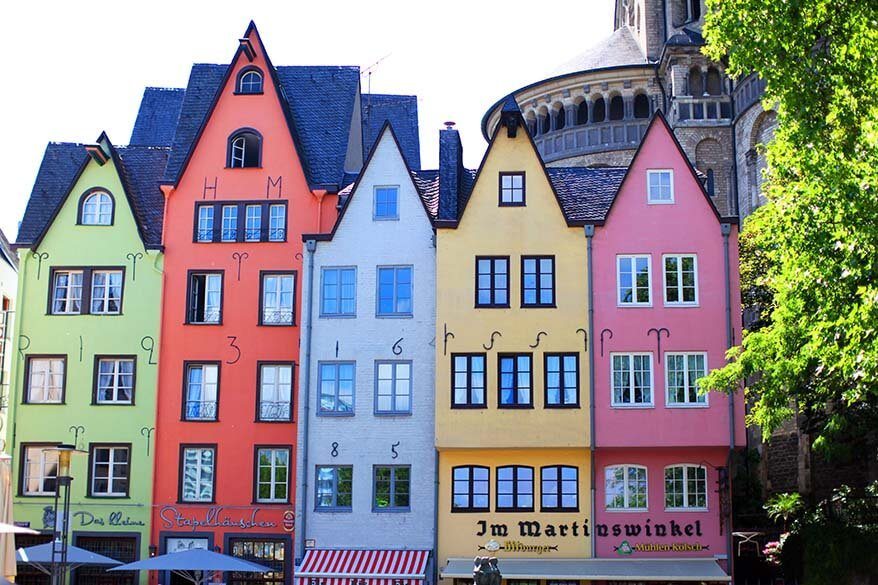
Pros
June and September is the shoulder season in Europe. The weather is very pleasant (which is a big advantage if you struggle with extreme heat) and prices are somewhat lower than in peak season. This is particularly true at the beginning of June – before European schools break up for the summer – and at the end of September when kids have returned to school.
Cons
The most popular destinations are busy and it might be too hot to explore the cities in southern Europe.
Best places to visit
Everywhere! Both – June and September are amazing months to travel in Europe. If you are looking for beaches and a relaxing vacation, Southern Europe is the place to be.
For sightseeing, Western Europe, Central Europe, and also Eastern Europe are very pleasant this time of the year.
This is also a good time of the year for outdoor activities, exploring the mountains, or hiking.
In the Nordics, you can experience the midnight sun in June and see the Northern Lights in September.
SOME TRAVEL INSPIRATION:
Lake Garda, Italy
Iceland in September
Icelandic Highlands
Algarve, Portugal
Emilia Romagna, Italy
San Marino
Scotland Whisky Tour
Edinburgh, Scotland
Funchal, Madeira
Best Towns in Tuscany, Italy
Italian Riviera
Belgium Itinerary
Day Trips from Amsterdam
Cinque Terre, Italy
Amalfi Coast, Italy
Best UK Cities
Best Things to Do in Krakow, Poland
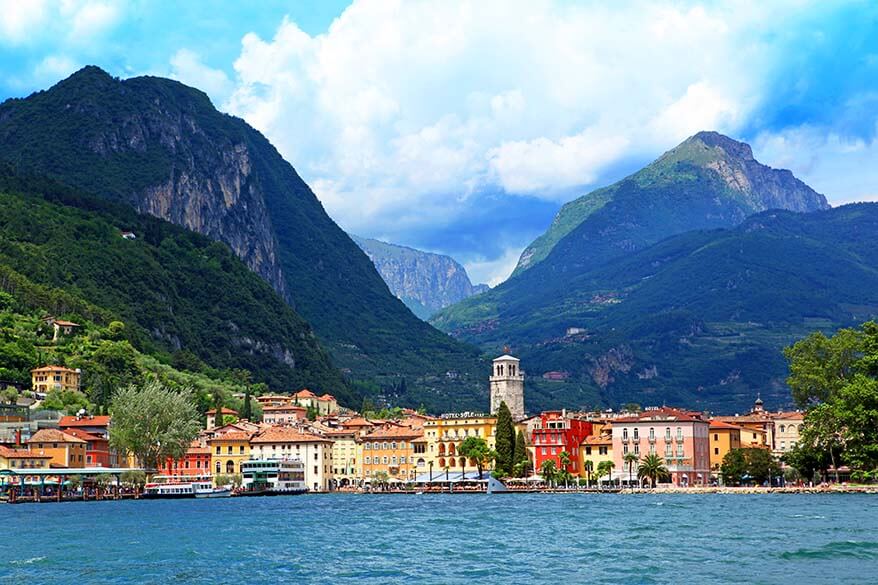
Special events
Many places higher up north in Europe (Norway, Finland, Lithuania, Sweden, etc.), celebrate Summer Solstice/ Midsummer at around June 21st-24th. The longest days of the year are a big deal in the Nordics and one of the best times to visit.
Bordeaux Wine Festival in France – one of the best annual wine festivals in the world – also takes place in June. You can attend wine workshops, tour vineyards, and, of course, taste wines produced in the region. More info here.
September sees the beginning of Germany’s Oktoberfest (despite its name suggesting otherwise). This event – held in Munich, Bavaria – brings together beer, German sausage, games, and amusement rides. Children are welcome too and special ‘family days’ are organized. More info here.
Almabtrieb, the traditional cattle drive from the mountains back into the valleys usually takes place in September. You’ll find these celebrations in many places in the Alps, mostly in Austria and Switzerland. Every region has different dates, usually on the weekends throughout September. Here you can find more information about Almabtrieb in Tyrol, Austria.

Europe in July – August
July and August is an absolute peak time to travel in Europe. These are the warmest months and temperatures can soar into the 30s (90s °F) in many areas.
If you want to visit beaches or go hiking in the mountains, this is the best time of the year to visit Europe. It’s also the best time to explore Nordic countries!
In July and August, the sun is high and the weather tends to be hot and sunny, although – being Europe – rain is still possible in some parts! It can even snow in the mountains.
The beginning of July and the end of August are a bit quieter, though still busy. Mid July to mid August is the absolute peak travel season in Europe.
The summer months are the best time for sporting events, outdoor festivals, and all kinds of cultural events across the continent. Whilst it may be a good time to visit if these events appeal to you, it might be better to avoid specific dates if you are not coming for the celebrations. It’s always a good idea to research if there are any special events going on prior to booking your trip.
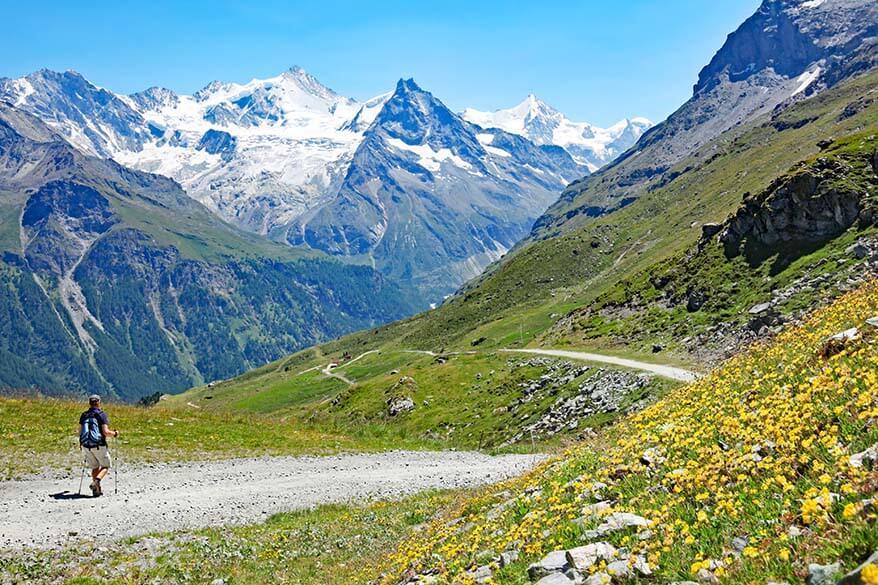
Pros
This is the best time of the year to be in Europe in terms of weather. Everything is open and there are lots of nice local events that will make your trip more special.
Also, the days are long, sometimes not getting dark until 9.30 to 10 pm, or even later if you go further north. This makes it possible to enjoy long, sultry days on the beach, followed by warm relaxed evenings that extend well into the small hours.
Cons
The crowds can become quite overwhelming in places, to the point of making it difficult to see or do everything you plan. Summer events and holidays can add to the problem – some places are heaving with people and the cost of accommodation skyrockets.
Furthermore, many places in southern Europe experience very high temperatures that make sightseeing really uncomfortable.
In addition, as demand is high, many activities/ tours/ tickets cost more and sell out long in advance. So if you are planning to visit Europe in summer, it’s essential to plan ahead!
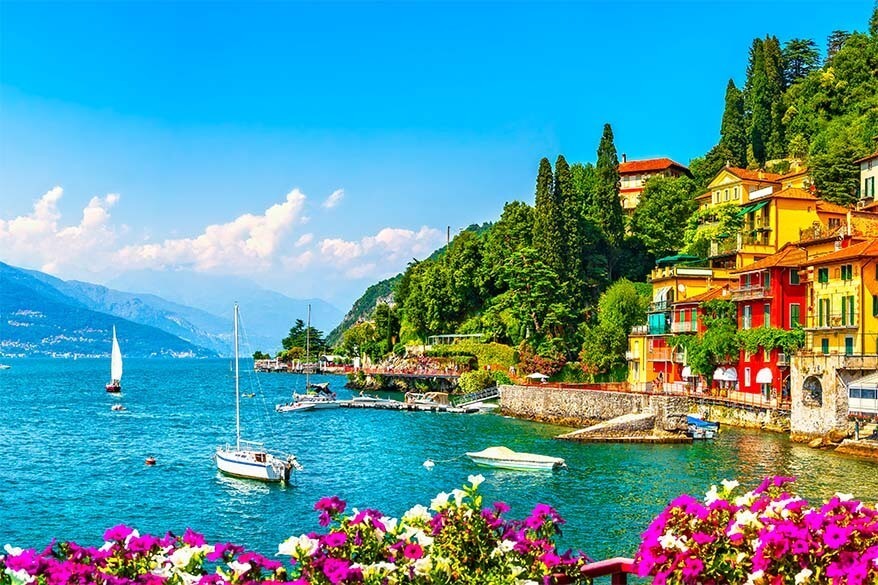
Best places to visit in summer
If you love beautiful summer weather and beaches, this is the best time to take advantage of the searing summer temperatures in the Mediterranean! Head down to the beaches of Nice or Cannes in Southern France, visit the Spanish Islands such as Ibiza or Mallorca, or go island-hopping in the Greek Islands.
For somewhat cooler temperatures, check out the Basque Country in Northern Spain. If you want a real beach holiday, the coastline of Algarve in Portugal is a great choice for the whole family. You’ll find many water parks, kayaking possibilities, and countless stunning beaches and amazing restaurants.
Summer is also a good time for visiting Belgium, the Netherlands, UK, Ireland, or Eastern Europe. It enjoys good weather at this time of year but is not as hot as southern Europe.
Eastern Europe is less expensive and less crowded than the other parts of the continent. From the sunny beaches of Bulgaria to city trips in Poland or the Baltic States, Eastern Europe has lots to offer its visitors, with much still waiting to be explored!
SOME TRAVEL INSPIRATION:
Best Cities to Visit in the UK
Isle of Skye, Scotland
Best Things to Do in Lithuania
Krakow, Poland
Sao Miguel, the Azores
Curonian Spit, Lithuania
Brac Island, Croatia
Bilbao, Spain
Auschwitz, Poland
Best Day Trips in Yorkshire, UK
Best Places to Visit Near Luxembourg
Cornwall, UK
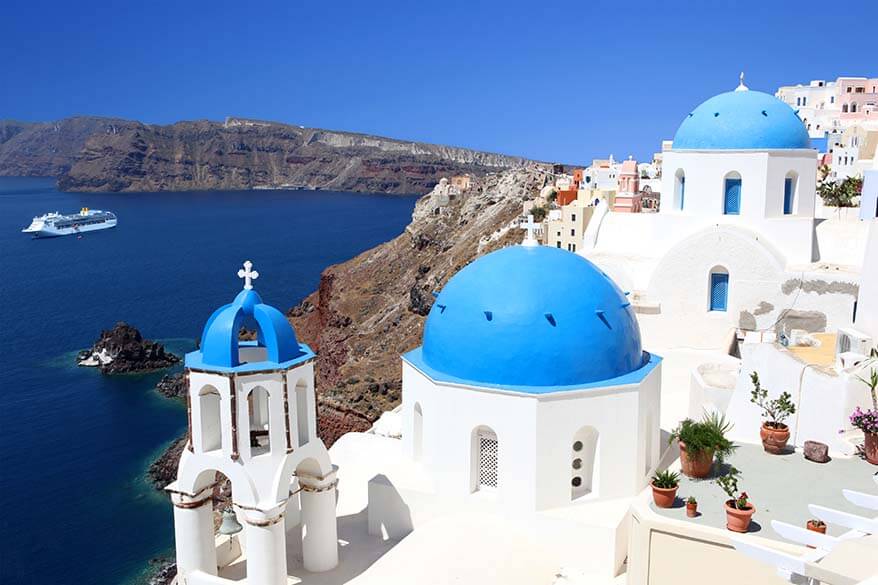
If you are looking for an adventure holiday or enjoy hiking, July and August are great to visit the mountains in Europe. The Alps, the Pyrenees, and the Dolomites are especially nice at this time of year!
If these places are a little above your budget or you are looking for something a bit more off the beaten path, then consider the mountains of Albania or Montenegro in the Balkans or Slovakia in Eastern Europe.
SOME TRAVEL INSPIRATION:
Best Hikes in the Dolomites, Italy
Zermatt, Switzerland
Matterhorn Glacier Paradise, Switzerland
Stubai Valley in Austria
Tyrol with Kids, Austria
Schynige Platte, Switzerland
Trentino Region, Italy
Chamonix, France
Grindelwald, Switzerland
Trübsee, Switzerland
Top of Tyrol, Austria
Mt Pilatus, Lucerne
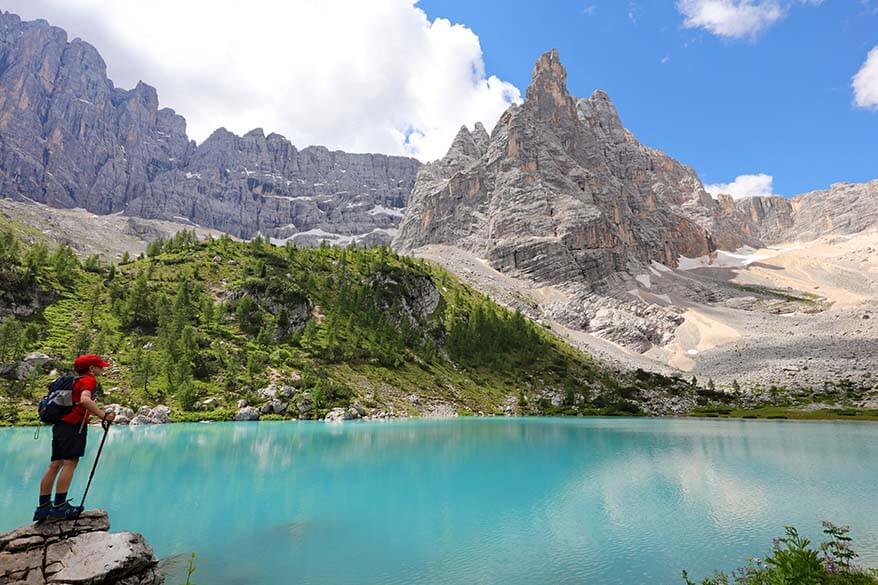
July and August are also great months to travel in Scandinavia or visit other Nordic countries, such as Iceland, the Faroe Islands, or Greenland.
Don’t expect beach weather though. Most of these places hardly ever get temperatures of over 20°C (68°F) and some even much lower than that. But the days are long, everything is accessible, and you can explore the beautiful nature of the Nordic regions to the fullest.
SOME TRAVEL INSPIRATION:
Best Places to Visit in Iceland
Lofoten Islands, Norway
Greenland Travel Tips & Itinerary
Faroe Islands Itinerary
Norway Itinerary
Iceland Ring Road
Northern Norway Road Trip
Svalbard Travel Guide
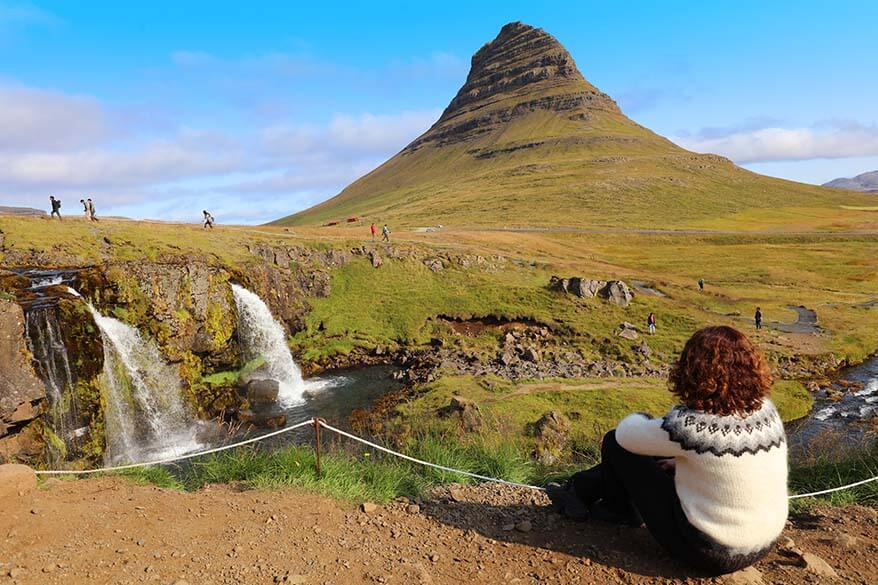
Special events
There are so many events and celebrations in Europe in summer that it’s difficult to mention even a small part of them.
France, Switzerland, Belgium, and many other countries have their National Day celebrations in summer. There are also lots of music festivals, such as Tomorrowland in Belgium that attract people from all over the world and always sell out in no time.
The Edinburgh Festival Fringe, the world’s largest arts festival takes place in Edinburgh, Scotland, in August. Tour de France bicycle race, Brussels Flower Carpet, and many, many other events take part all over Europe in July and August.
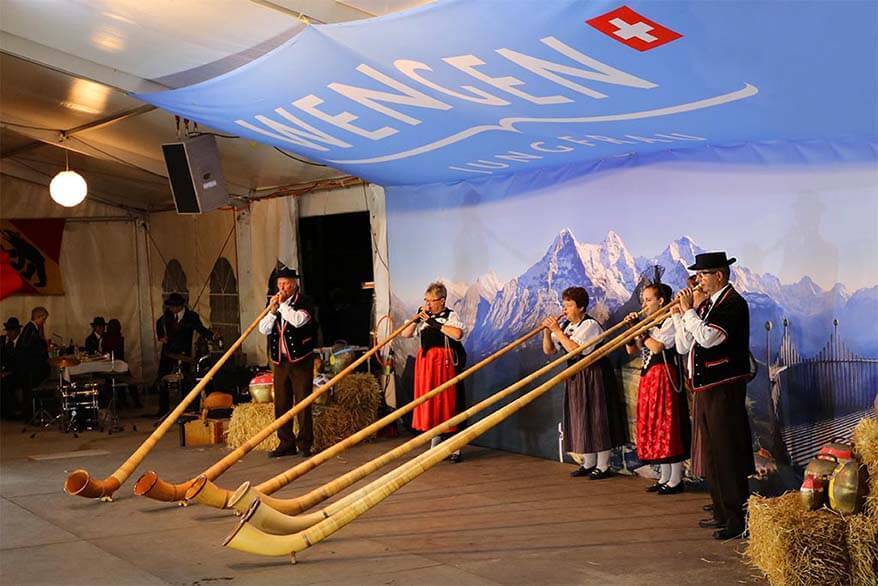
Europe in October – November
In October, travel slows down in Europe. However, the weather often remains quite nice, especially in Southern European countries. Also in Western Europe, it’s still possible to have some warm and sunny days in early to mid-October.
In general, the first half of October is a very good time to visit anywhere in Europe. It’s not nearly as busy as in September, the prices are lower, and the weather is still good in many places. In the south, it usually remains nice and warm throughout the entire month and even at the beginning of November. In the north, winter usually hasn’t arrived yet.
After that, the weather can be quite unpredictable, with the potential for lots of rain and autumn storms in many places. Visitor numbers are down, with November being one of the slowest months in Europe.
Cheaper flights, accommodation, and tickets for attractions make this a good time to visit Europe if you’re prepared to wrap up and risk the rain!
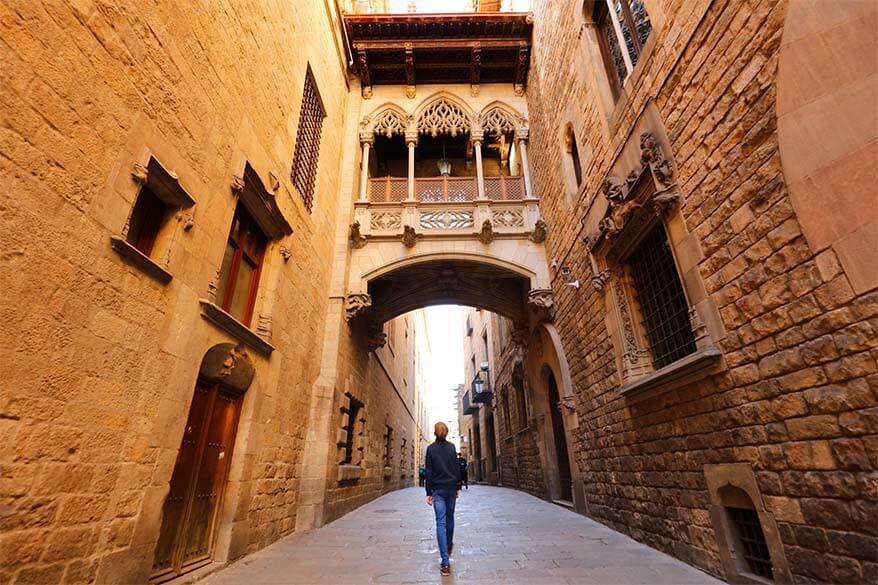
Pros
Prices are lower but there is still the possibility of good weather, particularly in October. The crowds of summer have gone and even the most popular places are quieter now. Also, the weather is not too hot and you can truly enjoy exploring cities like Rome, Athens, or Barcelona.
Cons
Some attractions may now be closed and bad weather is a possibility. In many areas that live of tourism in the summer, everything starts to close down in late October – early November. This is especially the case in the small touristy places in Greece, Croatia, or Italy, but not really an issue in bigger towns or major cities.
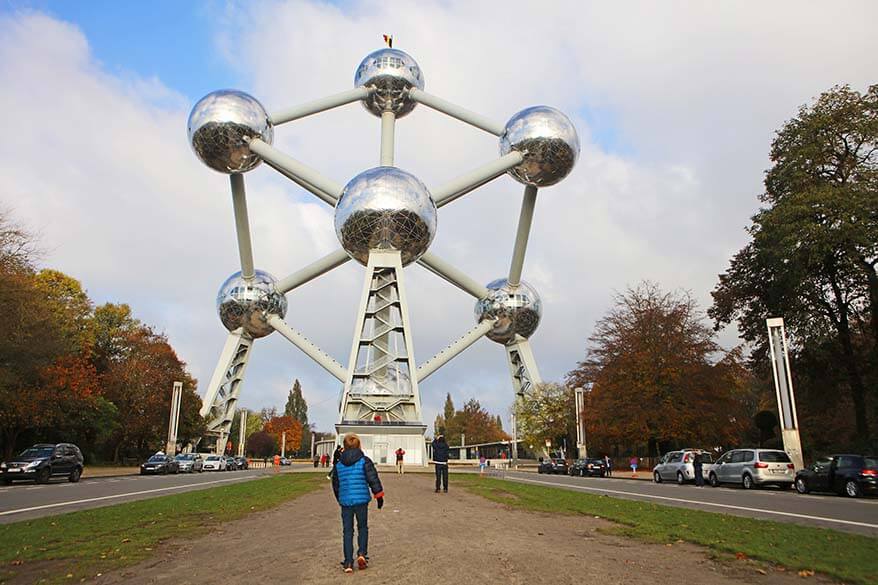
Best places to visit
Southern Europe can be great this time of the year! It’s often possible to enjoy a relatively warm beach holiday in the Mediterranean in October, but this is by no means guaranteed.
If you are more interested in sightseeing rather than the beach, then October – November is an excellent time to explore places like Italy, Spain, Croatia, Portugal, or Greece.
SOME TRAVEL INSPIRATION:
Paris in October
Italy in November
Rome in November
Albufeira & Lagos in Portugal
Best Cities in Portugal
Barcelona, Spain
Hidden Gems of Madeira
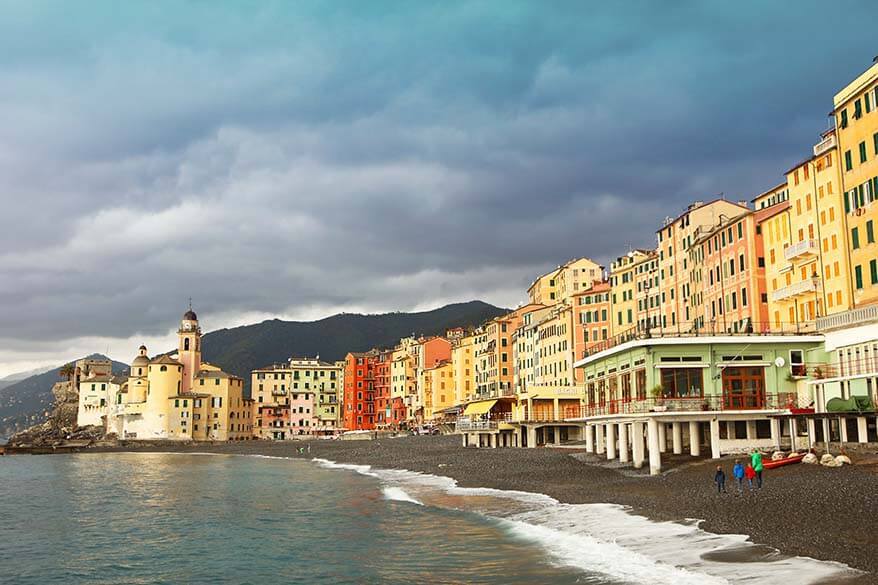
If you don’t mind the lower temperatures, October is also a good time to visit Eastern European cities such as Prague, Krakow, Vilnius, or Bucharest. While the weather is colder and wetter already, it’s usually quite ok for a city break.
You can also enjoy visits to cities in Northern and Western Europe without the crowds of summer. But be prepared for grey days, chilly temperatures, and the possibility of rain.
SOME TRAVEL INSPIRATION:
Milan, Italy
Best Places to Visit near London, UK
Manchester, UK
Bucharest, Romania
Antwerp, Belgium
Sintra, Portugal
Amsterdam, the Netherlands
Paris, France
Best Things to Do in London
Greenwich, London, UK
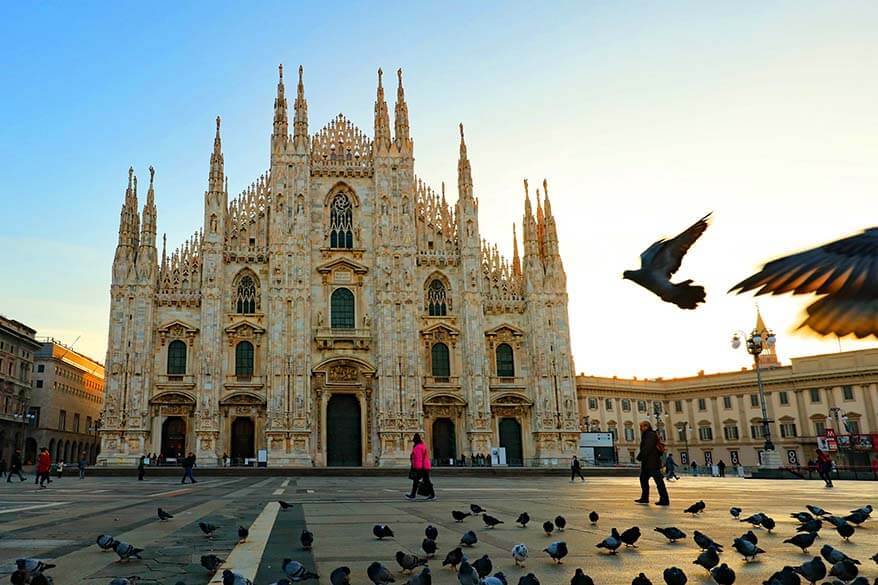
Special events
October is, of course, the time for Halloween. And whilst European celebrations are not as extensive as those in the US, you will often find parties and lots of dressing up.
To really get into the spooky spirit, head over to Romania and visit Dracula’s Castle. There are even themed Halloween trips throughout Romania. Ireland organizes the Spirit of Meath Halloween Festival, which includes events right across the country (more info here).
On the 5th of November, head to London to celebrate Bonfire Night, also known as Guy Fawkes Night. This celebration dates back to the early 17th century, with Guy Fawkes’ failed attempt to blow up the Houses of Parliament. The event is now marked by large bonfires and spectacular fireworks in many different locations throughout the city. More info here.
October and November are also popular months for all kinds of food- and drink-related festivals throughout Europe. The end of November is also the time when Christmas markets start to open throughout Europe (more about it below).

Europe in December
December is a month of two distinct halves. The first half of December is very quiet and very few people travel. Whereas the second half, when the school holidays start, is extremely busy.
Many Europeans head to the mountains in search of a white Christmas, others – to the Spanish islands in search of some winter sunshine. And even those who stay home for Christmas are usually visiting cities for Christmas markets, theaters, concerts, or shopping.
December is the coldest and darkest month of the year in Europe. It’s cold throughout the continent and temperatures may drop below zero in some areas. It is also one of the wettest months of the year.
On the other hand, December can also be a magical time to visit Europe. Especially if you are looking for a great Christmas atmosphere!
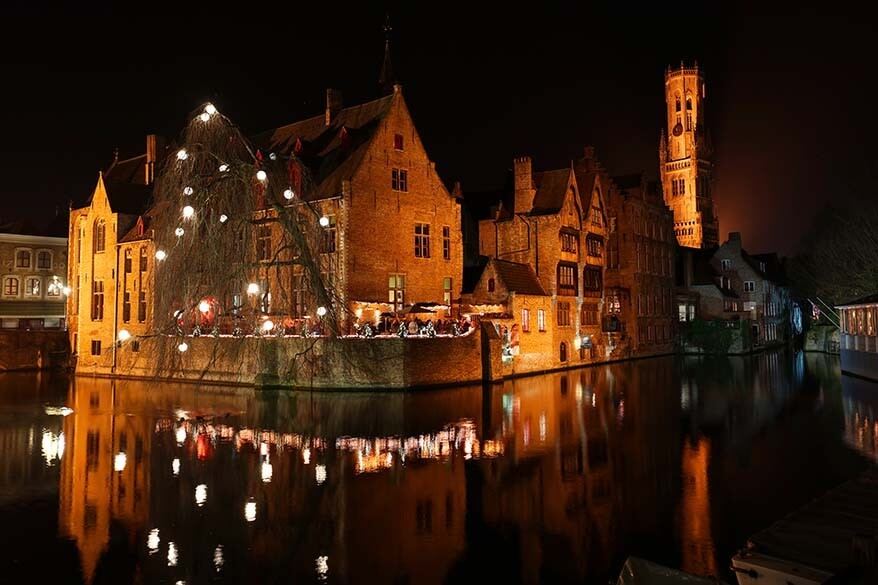
Pros
The first half of December is a good time to visit Europe if you’re on a budget and don’t mind the wet and cold weather. With the cost of flights, accommodation, and attractions generally low and few tourists around, this might be a good time to discover European cities. Just avoid Christmas markets on the weekends!
Cons
Major European cities can be very crowded at weekends throughout the entire month of December. That’s when Europeans flock to Christmas markets and do their Christmas shopping.
The cost of flights and accommodation goes up in the second half of the month and most major resorts and attractions will be very busy.
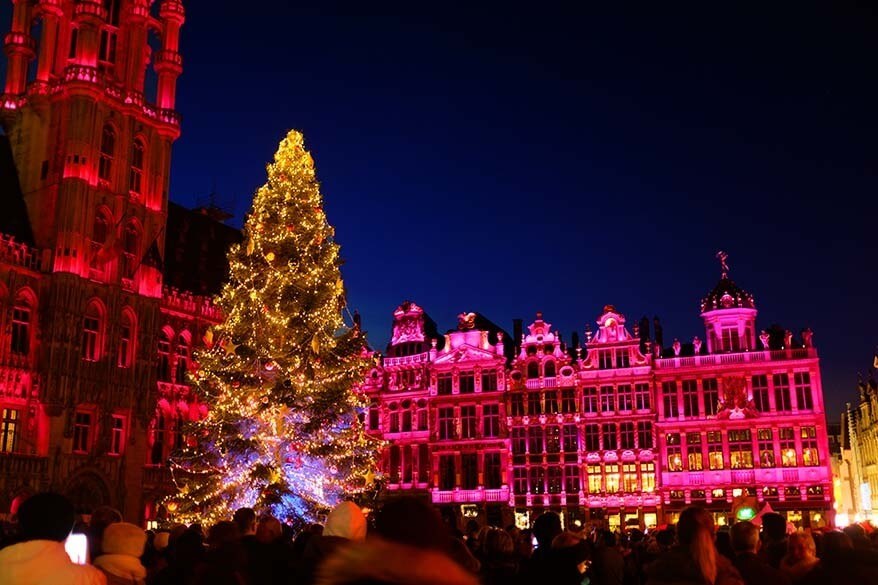
Best places to visit
European Christmas markets are the main reason to visit Europe in December! The choice is literally endless as Christmas markets can be found all over Europe. If this is your first time, then head to Germany. They have some of the best Christmas markets in the world!
In Eastern Europe and the Nordic and Scandinavian countries, the weather can be bitterly cold. Still, if you don’t mind the cold and the dark, city trips might be quite nice even in those regions. It’s also there that you’ll find some of the quieter Christmas markets without the huge crowds of Western Europe.
Good to know: Many European Christmas markets start in late November and run until just before Christmas. If you are planning to visit at the end of December, then head to places like Belgium where most Christmas markets remain open until the first weekend of January.
SOME TRAVEL INSPIRATION:
Vilnius Christmas Market, Lithuania
Best Christmas Markets in Belgium
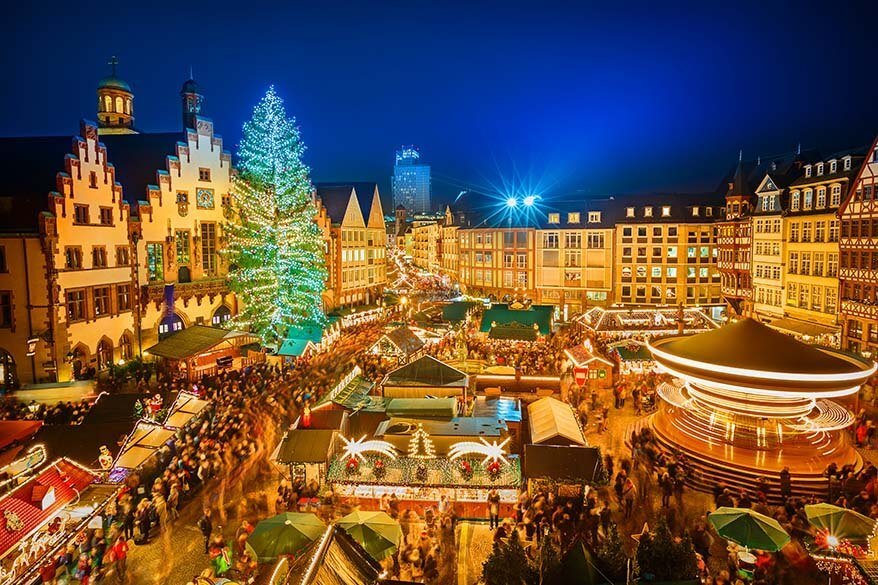
Ski season usually begins in December, so it’s a great time to head to the Alps. Although, this depends on the snowfall which has gotten quite unpredictable in recent years. Keep in mind, though, that the ski resorts are likely to be crowded in the second half of December. Also, look for ski resorts that are at higher altitudes and have more chances for snow this time of year.
If you’re hoping for some sun, your best bet will be the Canary Islands. The weather there is often still quite warm with daytime highs in the low 20s (low 70s F).
Rovaniemi in Finland is also a great place to be at Christmas, especially if you are visiting Europe with kids. You can visit Santa’s House, go dog sledding, and there’s a chance to see the Northern Lights as well. Just prepare for long hours of darkness and bitter Arctic temperatures!
If you don’t care about meeting Santa but want to experience the Arctic in winter and possibly see the Northern Lights, there are many more choices in Europe! Tromso in Norway is one of my personal favorite winter destinations.
Also Reykjavik in Iceland can be great around Christmas and New Year. If you want to get as close to the North Pole as possible and experience a real polar night, then there’s no better place to be than Svalbard!
SOME TRAVEL INSPIRATION:
Tromso Winter Trip Itinerary
Best Winter Day Trips from Reykjavik
Dog Sledding & Ice Caves in Svalbard
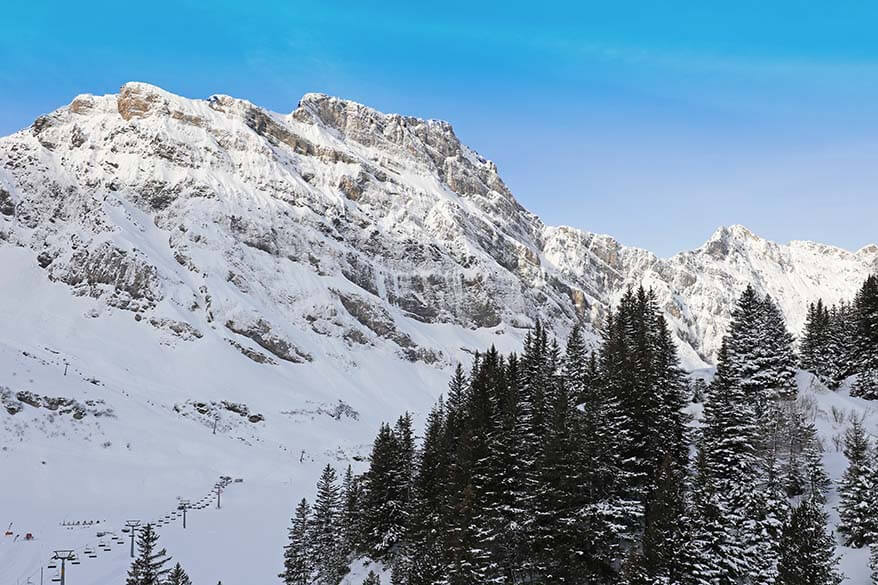
Special events
Despite the crowds, the Christmas markets are exceptionally good fun and a great way to get you feeling festive. The biggest and best are to be found in Frankfurt, Nuremberg, or Dresden in Germany, Vienna in Austria, or Brussels Christmas market in Belgium.
If you prefer to avoid the crowds, you will find lots of smaller Christmas markets in the smaller Western European cities or big cities in Eastern Europe.
And, of course, you’ll find elaborate New Year’s celebrations with impressive firework displays all over Europe.
SOME TRAVEL INSPIRATION:
Christmas Markets in Europe – Hidden Gems
Belgium in Winter
Amsterdam in December

Best Time to Travel to Europe
Many first-time visitors wonder when is the very best time to visit Europe. Here’s a short overview of the best time to travel around Europe based on your interests:
- Best time to visit Europe overall. If you want to make the most of your trip and visit several different countries in one trip, the very best time to visit Europe is in June or in September. Everything is open, the weather is nice all across the continent, and there are fewer crowds than in the summer.
- Best time to travel in European cities. The best time to visit European cities is in the spring or in the fall. The weather is usually very nice, but it’s not too hot for sightseeing, and it’s not too busy. Just try to avoid the Easter holiday and pubic holiday weekends in May.
- Best time to visit European beaches. The best time to visit European beaches is from June to September, with July and August being the busiest months. If you want to avoid the crowds and still enjoy warm weather and warm seas, visit southern European beach destinations at the end of September or at the beginning of October.
- Best time in Europe to avoid crowds. If you want to visit Europe without the crowds, then come in November or in January – February. Just keep in mind that the weather might be wet and cold. And while it’s a good time to visit major cities, tourist attractions in smaller places might be closed.
- Best time to visit Europe with family. If you are an American family visiting Europe with kids, then plan your trip in June! That’s when the weather is great and it’s not too busy yet. Because most European countries don’t start their school holidays until July, June is the very best month to visit Europe with kids if your country has school holidays already.
- Best time to travel in Europe on a budget. If you are visiting Europe on a budget, come in the low season (November, January, February). However, if you are looking for better weather, try the shoulder months like October or March. Or simply visit cheaper destinations! Traveling in Eastern European countries and also countries in the Balkan region is so much cheaper than in Western Europe or in Scandinavia.
- Best time to visit Europe on a cruise. The best time to visit Southern Europe on a cruise is in late spring or early fall. June, July, August, and the beginning of September are the best months for a cruise in Northern Europe or the Baltics.
- Best time to visit Eastern Europe. The warm season from May to September-beginning of October is the nicest time to visit Eastern Europe. For good weather and lower crowds, visit in May-June or in September.
- Best time to visit Southern Europe. Shoulder season (April-May and September-October) is the best time to visit countries in the South of Europe. Summer months are very busy and it’s often too hot for sightseeing.
- Best time to visit Scandinavia and Northern European countries. The summer season between June and mid-September is the best time for exploring Northern Europe. The weather is at its best, everything is accessible, and the days are long allowing you to make the most of your trip.
- Best time to go hiking in Europe. The best time to go hiking in the European mountains is in summer. In general, all the hiking trails are open from June through September. At higher altitudes, the hiking season might be a bit shorter, whereas at lower altitudes – a bit longer. If you want to go hiking in Europe in winter, head to the Portuguese island of Madeira.
- Best time to go skiing in Europe. The best time to go skiing in Europe is from January to March. If you are flexible, try to avoid the first week of January, the entire month of February, and the first week of March. That’s the busiest ski season when many European countries have school holidays.
- Best time to visit Europe for honeymoon. If you are looking to spend a romantic honeymoon in Europe, then visit in late May or late September. The weather is beautiful and it’s not too busy. You can also easily combine a relaxing beach holiday with sightseeing or road-tripping.
- Best time to see the Northern Lights in Europe. The best time in Europe for the Northern Lights is from September to March. In some places, auroras might be visible from the end of August and until mid-April, but chances are really low because it’s usually not dark enough. The Best places to see the Northern Lights in Europe are Nothern Norway (including Svalbard), Finland, Northern Sweden, Iceland, and Greenland. The very best place to see auroras in Europe is Tromso in Norway, from mid September to late March.
So, this is our guide to the best time to visit Europe. As you can see, every time of the year has something unique! There is really no bad time to travel to Europe, as long as you know what to expect and pick your destinations accordingly. Have a great trip!
READ ALSO: Fairytale Destinations in Europe
If you found this post helpful, don’t forget to bookmark it and share it with your friends. Are you on Pinterest? Pin these images!
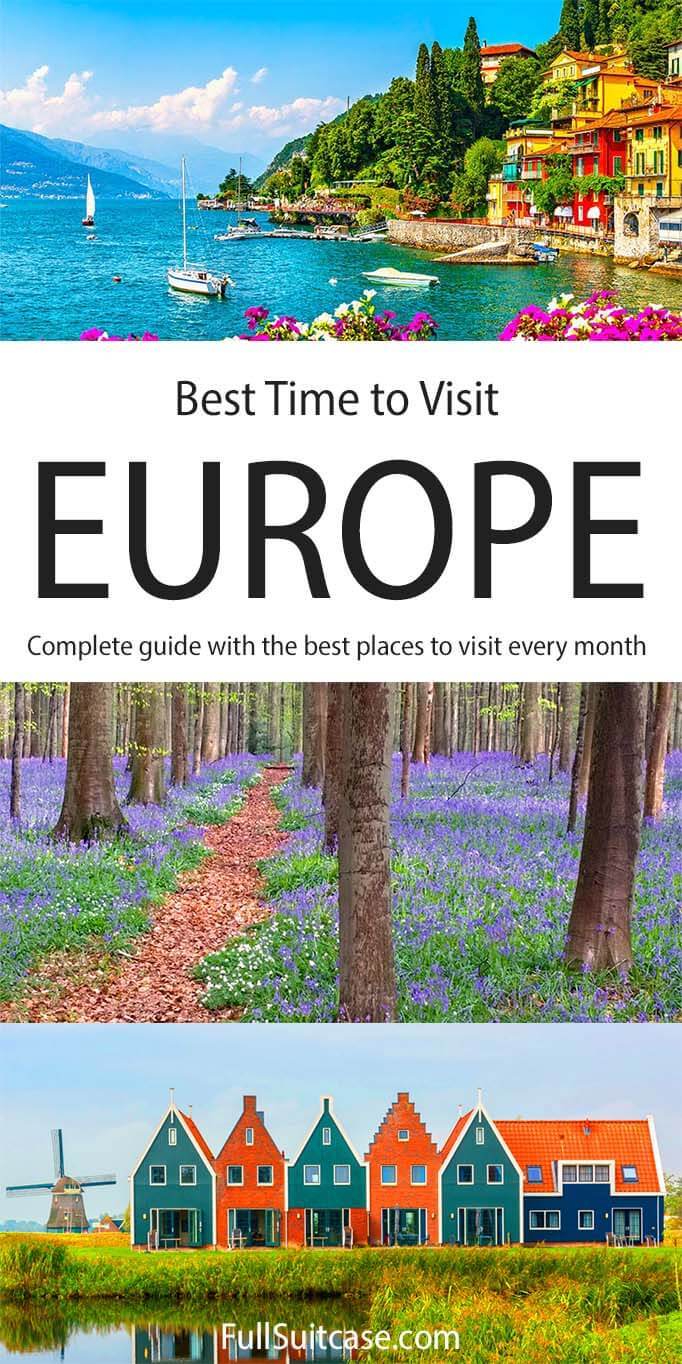
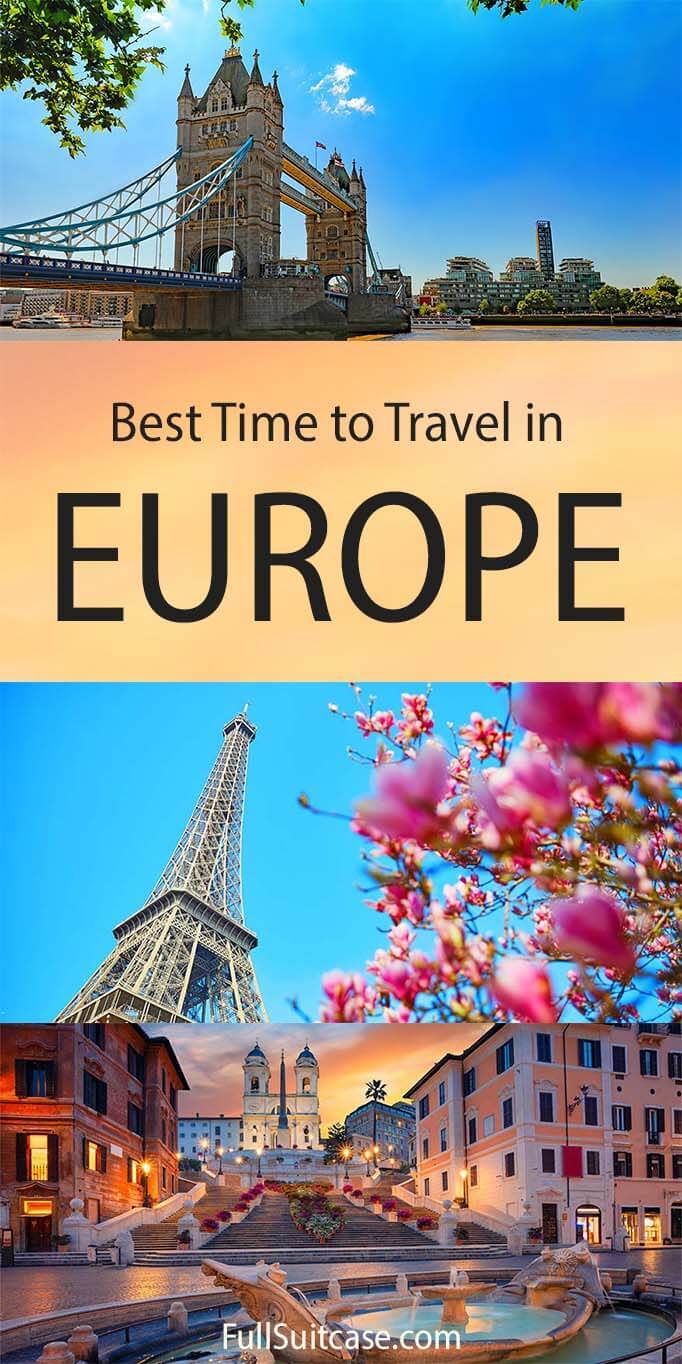
This site contains affiliate links, which means that we may earn a small commission, at no cost to you, for qualifying purchases. More info: Disclosure.

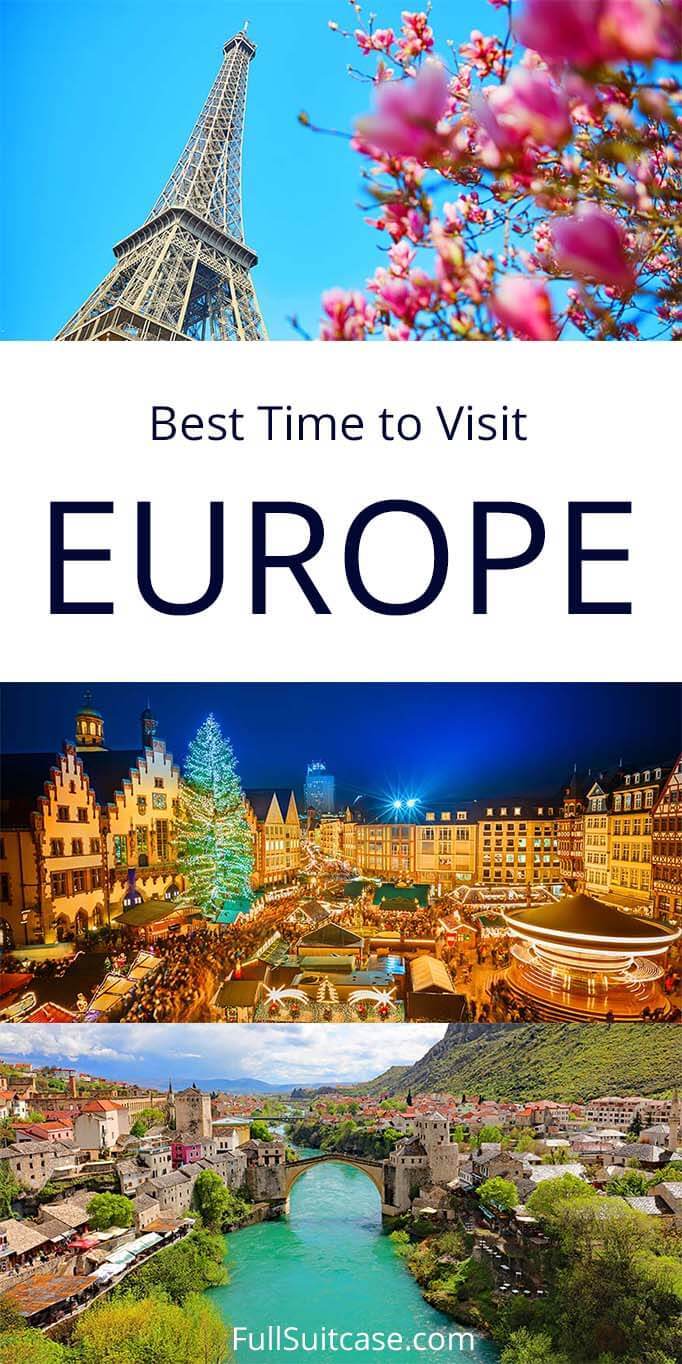

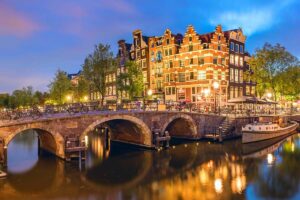

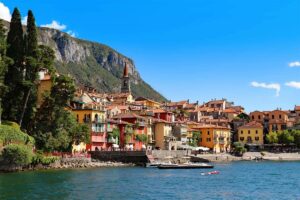

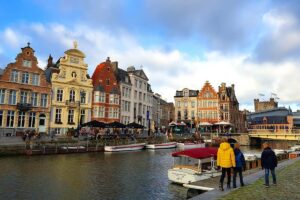

Hello Jurga, I am planning 2 separate trips to Europe. One in 2023 and one in 2024.
One trip consists of London, Lisbon, Brussels and Amsterdam.
The other will be Munich, Prague, Czech Republic and Berlin although Split could replace one these destinations, don’t know yet.
This will be sightseeing trips so beaches are not a priority and it will be just me and my wife.
I will be flying out of San Diego CA and trips will last 14 to 15 days each.
My question is when will be the best time to do each of the trips, taking into consideration weather, crowds and money.
Thank You for your help
Hi Alberto, one of the nicest times for the trip that includes Amsterdam is the second half of April – that’s when the tulips are at their best. You could do Lisbon first, and then Brussels, Amsterdam, London, or so. You never really know how the weather will be, but late April – early May is great for all of these cities. However, if you want to avoid the crowds, then come in March, before Easter.
For Central Europe, I’d go a bit later – maybe mid-May or so, before it gets too hot and too busy. Split will be the warmest of all of those, so if you aren’t interested in beaches, maybe start there first and move more northwards after that. Once again, you never know. This week, we have temperatures of almost 30°C in Belgium (never happens this time of the year) and the same in Italy where I just came from, whereas it’s been quite a lot cooler and raining for weeks in the Munich-Salzburg area. The weather remains a gamble.
For the crowds, it’s hard to say – it’s always much busier from March to October than in the winter, and the peak travel times are in July – August, plus Easter and long weekends in May. If you want to avoid the biggest crowds altogether and travel on a lower budget, then travel in late October – November or January – early March. In that case, always be prepared for at least some rain and cooler temperatures.
Good luck with the planning!
@Jurga, Thank you for the advice although I should have mention that from San Diego they are only direct flights to London and Munich so I will be doing round-trip flights from SD. In what order would you follow to see the other cities in each trip or go with what’s cheaper in transportation from city to city? I do like both suggestions of going in late April early May for one trip and mid May for the other trip although I was looking at late September or early October for the other trip. Thank You
Hi Alberto, the end of September – early October is great for all these places too. You really can’t go wrong with any of these periods.
As for how to plan an itinerary, there are endless possibilities. In Europe, you can find quite some cheap flights, and some shorter distances are easily covered by (fast) trains.
Here’s just one way to do it: fly to London; from London, fly to Lisbon; from Lisbon – fly to Amsterdam. Then take a train to Brussels. From Brussels, you can take a train back to London.
The same for Munich, Prague, Berlin, and potentially Split. Fly the bigger distances, take a train for the shorter ones.
Good luck with the planning!